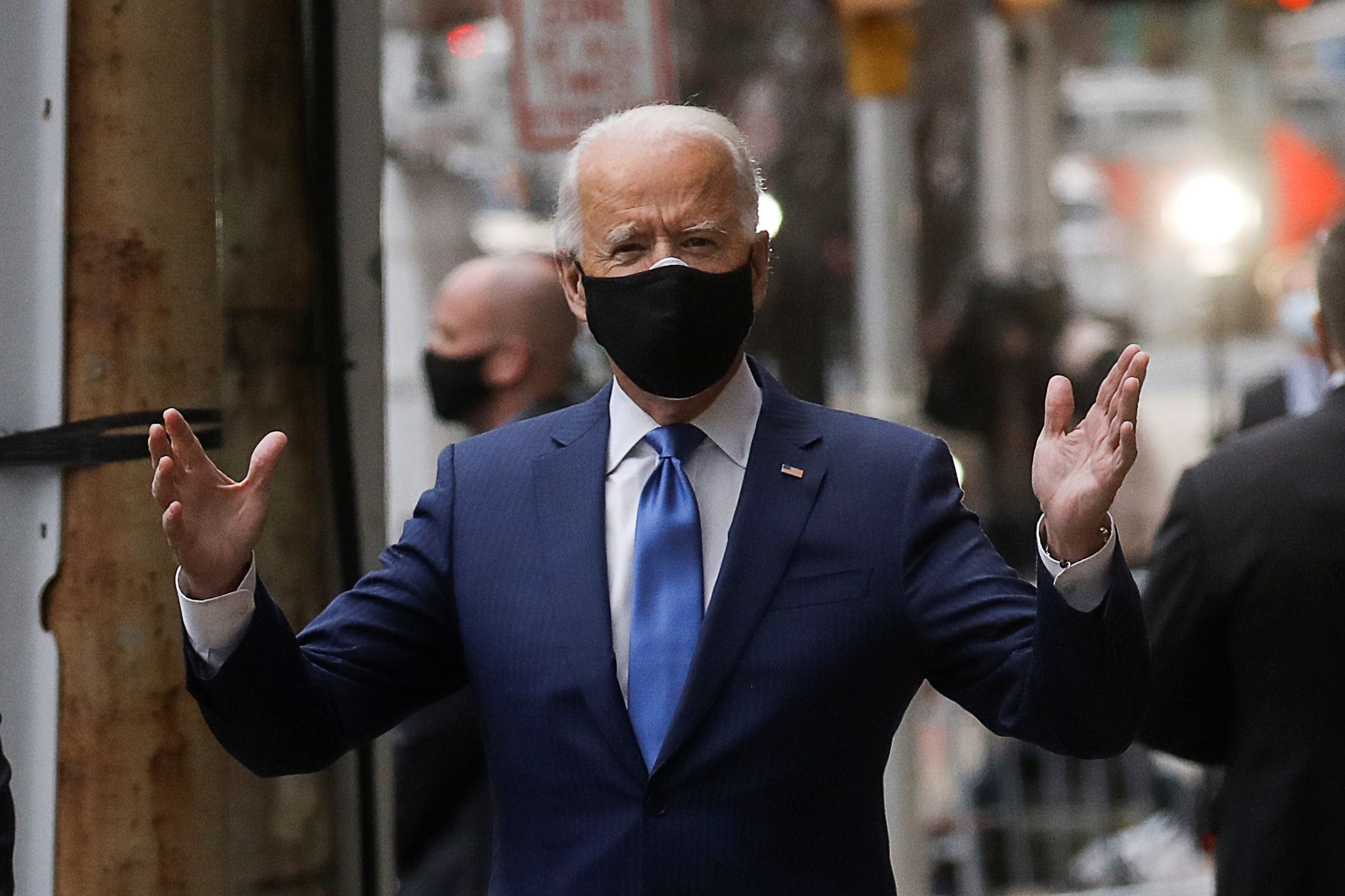Tensions in U.S.-France Economic Transatlantic Cooperation are Returning
Despite the close and multi-sector cooperation and ideological proximity of presidents Joe Biden and Emmanuel Macron, the U.S. and France have been unable to reconcile their differences in approach to key economic issues in transatlantic relations. The dispute over protectionism and their different positions in selected economic areas will burden bilateral relations in the coming years, threatening the stability of relations between the U.S. and the EU. Although the adoption of similar subsidies as the U.S. by the EU in the single market may be beneficial for Poland, the desire of individual countries to subsidise their own economies will cause internal tensions within the EU.
 EVELYN HOCKSTEIN / Reuters / Forum
EVELYN HOCKSTEIN / Reuters / Forum
The Context of Bilateral Relations
During the presidency of Donald Trump, U.S.-French relations deteriorated. This prompted the French authorities to increase their emphasis on developing the concept of European strategic autonomy in matters of security and economic policy. Biden’s victory was perceived by France as an opportunity to settle disputes and to renew U.S. global involvement, including in the field of climate protection. During the first year of Biden’s presidency, trade disputes with the EU were resolved, in particular the suspension for five years of the punitive tariffs connected to the dispute over subsidies for Airbus and Boeing, as well as the lifting of tariffs on steel and aluminium introduced by Trump in 2018.
Establishment of the AUKUS defence partnership between the U.S., the UK, and Australia, as a result of which the latter withdrew from a contract for French-made submarines, generated additional problems in bilateral U.S.-France relations. However, it was in the interest of both sides to resolve the dispute quickly, which they achieved in autumn 2021. Macron is perceived as the most stable partner for the U.S. in the EU. This was confirmed by the state visit of the French president to Washington at the turn of November and December 2022.
France on EU-U.S. Economic Cooperation
U.S.–French relations continue to be constrained by cooperation issues involving the U.S. and the EU. France sees a threat to the EU economy in the U.S. actions as France puts national preferences at the centre of industrial policy and has intensified efforts to ensure strategic sovereignty in Europe, in particular the competitiveness of European industry. In order to improve economic relations, the two sides established a Trade and Technology Council (TTC) in June 2021, with three ministerial meetings held so far. A separate issue is the antitrust provisions and regulation of digital services, which are the subject of the work of the Joint Technology Competition Policy Dialogue (TCPD) established in December 2021. Both the TTC and the TCPD do not address the broader issues of digital data access and management, most likely because there is too much difference in the EU and U.S. approaches. Strengthening the dialogue with the U.S., especially within the Energy Council and the TTC, was one of the objectives of the French presidency of the EU Council. The European Commissioner for the internal market, the Frenchman Thierry Breton, stressed the urgent need to maintain the competitiveness of the European industrial base. He cited transatlantic cooperation as key to the field of supply chains and digital technologies.
Dispute over Protectionism
Tensions heightened when the U.S. adopted the Inflation Reduction Act (IRA), which included protectionism in trade relations with allies and partners. Among the measures in the act are providing tax credits of up to $7,500 to consumers depending on, one, the amount of critical minerals extracted or processed in the U.S., Canada, and Mexico used in an electric vehicle (EV) battery and, two, the percentage of the battery’s components manufactured or assembled in those countries. EU institutions and Member States, including France, are also concerned about, among others, tax credits concerning energy produced from renewable sources and hydrogen, as well as technology investments in the energy sector (nine provisions in total). While the EU commends the U.S. authorities for their decisive action on climate change, subsidies that exclude the automotive industry located in the EU remain an issue. Macron, as well as officials from the EU, Germany, UK, Japan, and South Korea openly criticised the U.S. measures and threatened to file a complaint with the WTO, demanding guarantees of access to the IRA provisions analogous to Canada and Mexico.
French Finance Minister Bruno Le Maire took the position that the IRA poses a threat to European companies and should be met with firm reaction from the EU. During a visit to Washington in February, Le Maire, together with his German counterpart, Robert Habeck, sought full U.S. transparency in the allocation of subsidies and tax credits and that the implementation of the IRA include as many European components as possible. Le Maire also announced the possibility of permanent communication with the U.S. at the government level regarding strategic investments in the EU and the U.S. as a supplement to the existing bilateral dialogue formats. As a response to the IRA at the national level, Le Maire announced work on a law for green industry that aims to make France a European leader in this field. The act is intended to accelerate the reconstruction of the green industrial base by accelerating the process of issuing permits for new industrial areas and strengthening the financing of innovation in industry. In addition, France is seeking targeted subsidies and tax credits at the EU level, wants to support key green industries, and counts on the easing of EU state aid rules that limit the possibility of Member States subsidising companies.
In order to resolve the dispute over the IRA and reach a compromise, a U.S.-EU Task Force was established. The changes made so far at the stage of implementing the IRA provisions assume that EU manufacturers can benefit from the tax credits if the sale of vehicles is to commercial rather than private entities. The issue of subsidies is perceived in the U.S. more as a consequence of the implementation of an ambitious climate policy than as a measure aimed at limiting European companies’ access to the American market. For this reason, it is not considered by the administration to be a problem with a long-term potential for negative impact on economic cooperation with the EU.
France hopes that the EU response will lead to similar measures for European industry, either of a fiscal nature or in terms of investment support, and considers the creation of a European system of aid for enterprises. One of Macron’s proposals is the adoption of a legal act that would allow Europeans to favour European products, reduce dependence on external suppliers, stop the relocation of European capital, and enable the use of European trade defence instruments (“Made in Europe” strategy). At the same time, the President of the European Commission Ursula von der Leyen announced the development of the Green Deal Industrial Plan to complement the actions taken under the European Green Deal and the REPowerEU. The Green Deal Industrial Plan aims at simplifying the existing regulatory framework and accelerating investment and access to financing for clean technologies in Europe, thereby making it easier for Member States to grant public aid to speed up the green transformation.
Conclusions
The U.S. authorities are unlikely to make major concessions in the implementation of the IRA, which may be justified by the limited possibilities of modifying the provisions within the statutory limits of the president’s powers to implement policy under the executive orders. Changes in the IRA through revised legislation may not be possible because of a lack of support from Republicans, which have the majority in the House of Representatives (none of the Republicans in either chamber of Congress voted in favour of the adoption of the IRA in August 2022). However, the U.S. may encourage the EU and its Member States, including France, to adopt similar regulations, which would also make it more difficult for China to access the European market.
In the case of France, which is pushing for closer public-private partnerships at the national and EU levels, protectionism is becoming an increasingly common feature of American foreign policy. For this reason, it cannot be ruled out that in the coming years, subsidies for domestic French products similar to those adopted in the U.S. will lead to tensions in U.S. cooperation with its allies and partners, not only with France. In this context, in relations between the U.S. and the EU (and, consequently, with France), the temporarily suspended dispute over subsidies for Airbus and Boeing may return as a contentious issue.
The escalation of economic disputes between the EU and the U.S. is not in the interest of Poland, which wants to maintain stable transatlantic relations. Although the U.S. is urging the EU to introduce its own subsidies, they may result in intra-EU competition and discrimination of some countries. Therefore, it will not be in Poland’s interest to strive to subsidise individual economies, but only to create common measures at the EU level. This will enable competitiveness in the supply of components, including batteries, for vehicles produced by the automotive sectors of other EU countries, led by Germany and France. With regard to the French proposals to ease the EU state aid rules, Poland may encourage the improvement of existing mechanisms and increase the competitiveness of the single European market.






